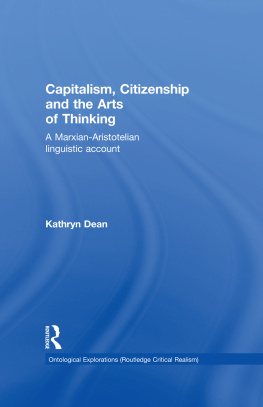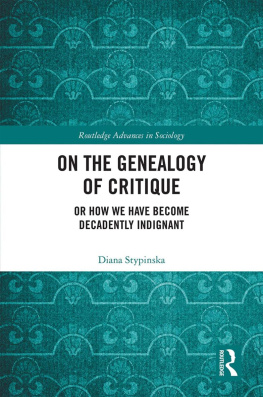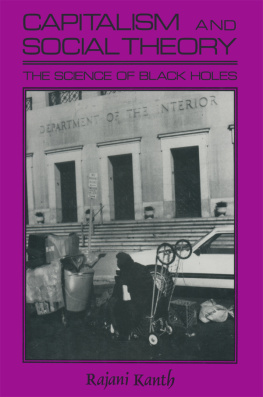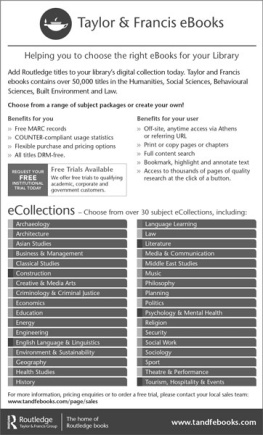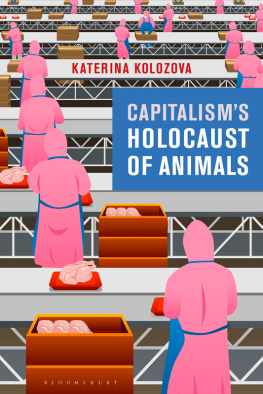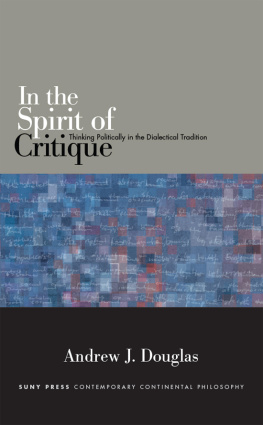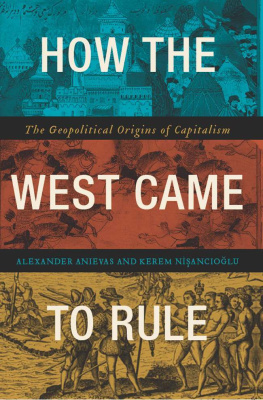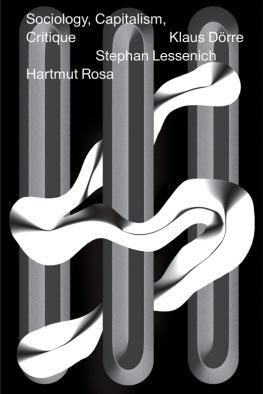Capitalism, Citizenship and the Arts of Thinking
Capitalism, Citizenship and the Arts of Thinking proposes a historical materialist ethic of human flourishing understood in terms of the practice of citizenship. It focuses on the ways in which capitalisms necessary mode of thinking analytical thinking impedes the nurturing of capabilities for citizenship as understood from a MarxianAristotelian point of view. It includes a systematic discussion of the Aristotelian resonances in Marxs critique of capitalism, as well as an elaboration and critique of Alfred Sohn-Rethels account of the origins of analytical thinking, and of the modern sciences as a manifestation of this thinking, in his book Intellectual and Manual Labor: A Critique of Epistemology. Taking Sohn-Rethels important work as a point of departure, the book develops an understanding of thinking as a fully-embodied multimaterial activity having historico-culturally specific manifestations, analytical thinking being one of these. This understanding is grounded in the language theories of Lev Vygotsky, Alexander Luria, Jack Goody, Eric Havelock and Walter Ong and provides a focus on modes of language as the key to understanding different modes of thinking. It traces the development of analytical thinking from ancient Greece to nineteenth-century England. It examines a key stage of this development, namely the reconfiguration of analytics through mathematisation and experimentation during the seventeenth century. Through this reconfiguration, analytical thinking became a condition of possibility for the division of head and hand during the nineteenth century, as argued by Sohn-Rethel. In the conclusion, the author brings the analysis into the contemporary world by examining the changes effected by digitalised communication in relation to the potential for citizenship today, drawing on the work of Michael Hardt and Antonio Negri in order to do so.
Kathryn Dean is a Research Associate with the Department of Political and International Studies, School of Oriental and African Studies, University of London.
Ontological Explorations:
Other titles in this series:
From One Empire to the Next
Radha DSouza
Science for Humanism
The recovery of human agency
Charles R. Varela
Philosophical Problems of Sustainability
Taking sustainability forward with a critical realist approach
Jenneth Parker
Dialectic and Difference
Dialectical critical realism and the grounds of justice
Alan Norrie
Interdisciplinarity and Climate Change
Transforming knowledge and practice for our global future
Edited by Roy Bhaskar, Cheryl Frank, Karl Georg Hyer, Petter Naess and Jenneth Parker
Conversations about Reflexivity
Edited by Margaret S Archer
Relational Sociology
A new paradigm for the social sciences
Pierpaolo Donati
Sociological Realism
Edited by Andrea M. Maccarini, Emmanuele Morandi and Riccardo Prandini
The Economics of Science: A Critical Realist Overview
Volume 1: Illustrations and philosophical preliminaries
David Tyfield
The Economics of Science: A Critical Realist Overview
Volume 2: Towards a synthesis of political economy and science and technology studies
David Tyfield
Ontology Revisited
Metaphysics in social and political philosophy
Ruth Groff
Childhoods, Real and Imagined
Volume 1: An introduction to critical realism and childhood studies
Priscilla Alderson
Naturalizing Critical Realist Social Ontology
Tuukka Kaidesoja
Whats Critical about Critical Realism? Essays in Reconstructive Social Theory
Frederic Vandenberghe
Integrating Knowledge Through Interdisciplinary Research
Problems of theory and practice
Dominic Holland
The Contradictions of Love
Towards a feministrealist ontology of sociosexuality
Lena Gunnarson
Capitalism, Citizenship and the Arts of Thinking
A MarxianAristotelian linguistic account
Kathryn Dean
First published 2014
by Routledge
2 Park Square, Milton Park, Abingdon, Oxon OX14 4RN
and by Routledge
711 Third Avenue, New York, NY 10017
Routledge is an imprint of the Taylor & Francis Group, an informa business
2014 Kathryn Dean
The right of Kathryn Dean to be identified as author of this work has been asserted by her in accordance with sections 77 and 78 of the Copyright, Designs and Patents Act 1988.
All rights reserved. No part of this book may be reprinted or reproduced or utilised in any form or by any electronic, mechanical, or other means, now known or hereafter invented, including photocopying and recording, or in any information storage or retrieval system, without permission in writing from the publishers.
Trademark notice: Product or corporate names may be trademarks or registered trademarks, and are used only for identification and explanation without intent to infringe.
British Library Cataloguing in Publication Data
A catalogue record for this book is available from the British Library
Library of Congress Cataloging-in-Publication Data
Dean, Kathryn.
Capitalism, Citizenship, and the Arts of Thinking : a MarxianAristotelian linguistic account / Kathryn Dean.
pages cm. -- (Ontological explorations)
Includes bibliographical references and index.
1. Thought and thinking. 2. Capitalism. 3. Citizenship. 4. Marx, Karl, 1818-1883. 5. Aristotle. I. Title.
BF441.D377 2014
320.01--dc23
2013040765
ISBN: 978-0-415-55350-6 (hbk)
ISBN: 978-0-203-87170-6 (ebk)
Typeset in Times New Roman
by Taylor & Francis Books
Acknowledgements
I must first record my warm thanks for the inspiration and encouragement offered to me by Roy Bhaskar. Without his early enthusiasm for the project, I would not have begun this book and without his ongoing support I would not have finished it. Thanks are also due to Peter Dickens and Colin Mooers who read and commented on the original proposal and early draft chapters. Rachel Sharp provided crucial help by reading a completed draft of the manuscript and providing me with many generously constructive criticisms and suggestions. Deirdre Dean read the penultimate draft and was the source of a multiplicity of stylistic improvements. The flaws that undoubtedly remain are, of course, my responsibility. At Taylor & Francis, the support of Alan Jarvis has been indispensable and, in coaxing me towards completion of the Damian Mitchell has been unfailingly courteous and helpful. Ruth Bradley and Martin Barr made the technical part of my task remarkably smooth. More broadly, I wish to thank the Department of Politics and International Studies, at the School of Oriental and African Studies, University of London, for continuing to offer me its support since my retirement some years ago. Finally, I need to register my appreciation for the enthusiasm expressed by my son-in-law, Carl Stowell-Smith, for the ideas in this book, during many early summer evening conversations in his garden, and for the strongly motivating force of my grandson Finns determination that my seemingly never-ending writing would result in a book. Without all of the above, this work would not have been completed.

